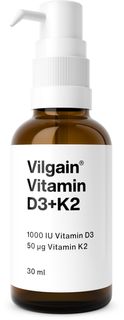Stress Supplements
Stress is an almost daily part of life, whether at school, work or in our personal lives. In the short term, stress can make us more productive, but in the long term it is a problem that can negatively affect the immune or cardiovascular system, impair performance and sexual health.
In addition to lifestyle factors, stress can be partially reduced by appropriately selected dietary supplements such as
- magnesium is an element that affects the central nervous system, so its deficiency often results in fatigue, irritability or anxiety;
- B vitamins support the normal functioning of the nervous system. In addition, vitamin B6 supports the effectiveness and absorption of magnesium;
- vitamin Dwhich is deficient in a significant proportion of the population, has a direct effect on feelings of anxiety and depression;
- tryptophan is a precursor to the hormones serotonin and melatoninand is thus indirectly involved in the process of influencing mental state and mood;
- l‑theanine is an amino acid found in green tea. In addition to promoting relaxation and reducing stress, it also affects cognitive function.
A special group is represented by the so called 'amino acids'. adaptogens - substances that help the body cope with external stressful stimuli. The most effective adaptogens include maca, ashwagandha, ginseng, eleutherococcus or rosewood. For observable effects, it is recommended to take these substances on a long‑term basis.
A feeling of relaxation can also be achieved with herbs and herbal teas. Among the most popular herbs are valerian, lemon balm, chamomile or passionflower.


How to get rid of stress?
Stress management or the ability to deal with stress is an often underestimated yet indispensable part of of a healthy lifestyle. With some habits, it is possible to reduce or prevent long‑term stress and avoid negative effects on life. Popular anti‑stress techniques include:
For proper stress management, it is also important to ensure adequate sleep, a balanced diet and regular exercise. In case of long‑term problems and inability to cope with stress alone, it is advisable to consult a therapist.








